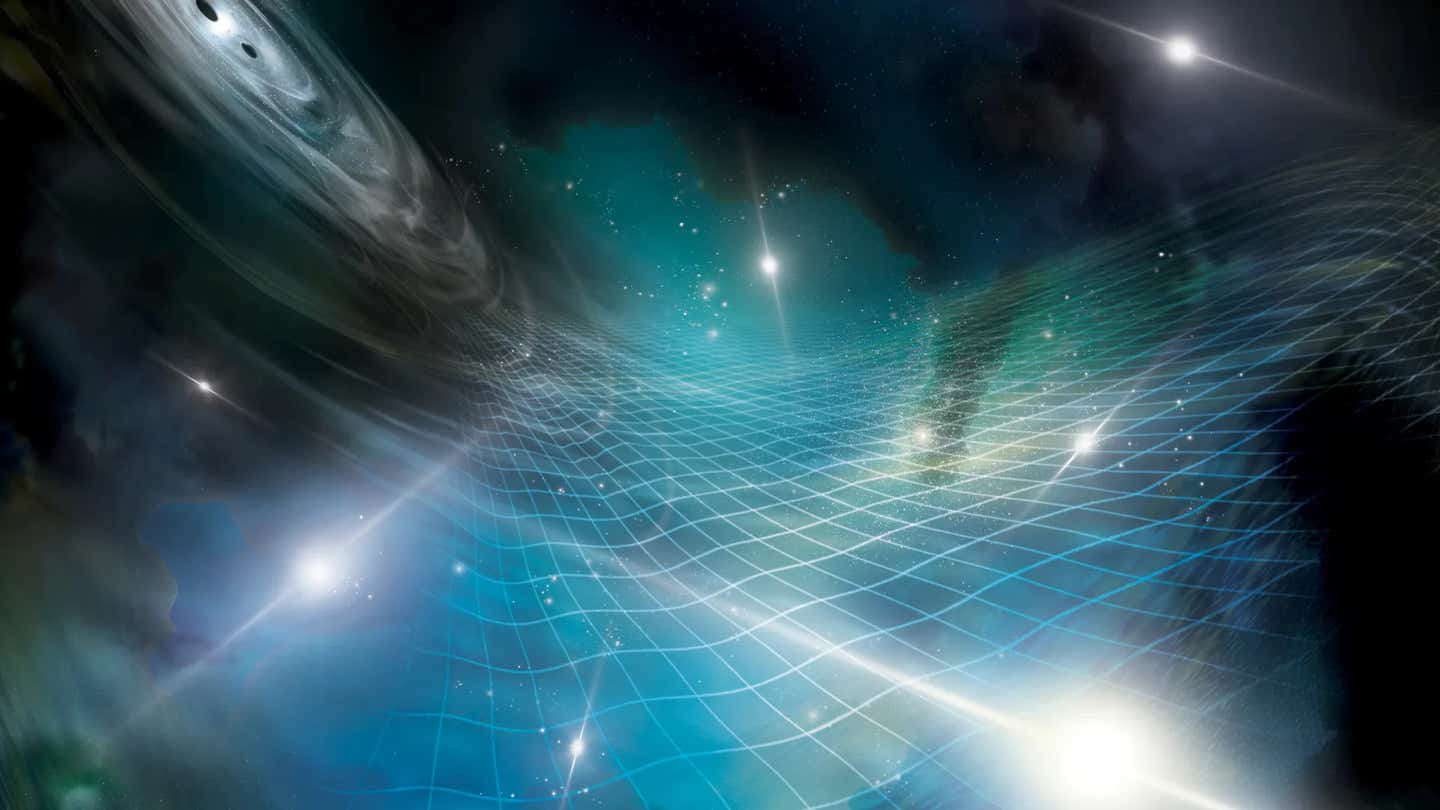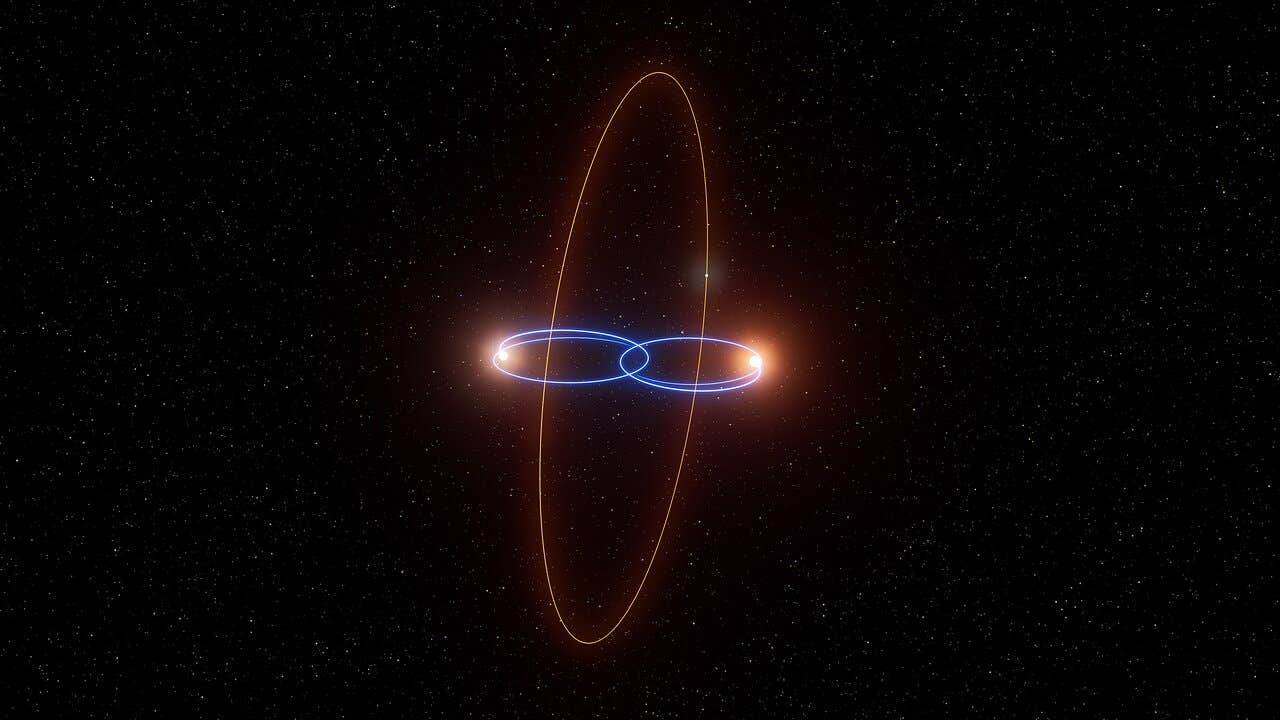Scientists have discovered a potential “cosmic glitch” in gravity
For over a century, Einstein’s theory of general relativity has reigned supreme in explaining gravity across the universe.

For over a century, Einstein's theory of general relativity has reigned supreme in explaining gravity across the universe. (CREDIT: Creative Commons)
For over a century, Einstein's theory of general relativity has reigned supreme in explaining gravity across the universe. Describing gravity as a warping of spacetime caused by mass and energy, general relativity has passed numerous tests, from predicting the motions of planets to capturing the distortion of light around black holes.
However, recent research suggests a potential chink in this theory's armor when dealing with the vast expanse of the cosmos.
A team of researchers from the University of Waterloo and the University of British Columbia propose a "cosmic glitch" in gravity, a deviation from general relativity's predictions on the largest scales. Led by Robin Wen, a recent Waterloo graduate, the team's findings challenge how gravity behaves on the scale of galaxy clusters and beyond – distances reaching billions of light-years.
Evolution in the CGG model. The upper panel shows the effects of Ωg on the energy density compositions Ωi(z) for the photons, baryons, CDM, neutrinos (including both massive and massless species) and dark energy components, respectively. (CREDIT: Journal of Cosmology and Astroparticle Physics)
"General relativity has been the cornerstone for understanding everything from the Big Bang to black holes," says Wen. "However, when we zoom out to the cosmic scale, inconsistencies emerge between observations and the theory's predictions. It's as if gravity weakens slightly over these immense distances."
This observed weakness in gravity has puzzled cosmologists for over two decades. Numerous attempts have been made to reconcile these inconsistencies, many at Waterloo's forefront of gravitational research, which thrives on collaboration between mathematicians and astrophysicists.
"We've known for a while that our universe is constantly expanding," explains Niayesh Afshordi, a Waterloo astrophysics professor and Perimeter Institute researcher. "The farther away galaxies are, the faster they recede. This expansion reaches velocities approaching the speed of light, the limit set by Einstein's theory. Our findings suggest that on these vast scales, general relativity might not be the whole picture."
Related Stories
The proposed "cosmic glitch" model introduces modifications to Einstein's equations, specifically targeting this discrepancy in cosmological measurements. Importantly, these modifications do not affect the well-established successes of general relativity on smaller scales.
"Think of it as an addendum to Einstein's theory," clarifies Wen. "On the grand cosmic scale, there might be additional 'terms and conditions' at play."
This research, published in the Journal of Cosmology and Astroparticle Physics under the title "A cosmic glitch in gravity," represents a potential first step towards a more comprehensive understanding of gravity across vast distances, offering a crucial piece in the ongoing puzzle of the cosmos.
Parameter constraints for the three derived cosmological parameters {Ωm,σ8,S8}, along with H0 and Ωg of the ΛCDM and CGG (ΛCDM+Ωg) models using the Planck18 data (TT,TE,EE+lowE+lensing likelihood). In the ΛCDM model, Ωg = 0. (CREDIT: Journal of Cosmology and Astroparticle Physics)
The team's findings, while intriguing, require further exploration. Their model proposes a single parameter, denoted by Ωg, to quantify the weakening effect of gravity on the largest scales. Future observations with increased precision can help refine the value of Ωg and solidify the model's validity.
Additionally, the team acknowledges the possibility of Ωg being a non-constant value, potentially evolving over time. With further investigation and potentially groundbreaking discoveries, this research paves the way for a more nuanced understanding of gravity's role in shaping the universe's grand structure and evolution.
Other elements of Einstein's General Theory of Relativity
Einstein's theory of general relativity, published in 1915, revolutionized our understanding of gravity. Here's a simplified summary:
Spacetime Curvature: Instead of gravity being a force as described by Newton, Einstein proposed that massive objects like stars and planets curve the fabric of spacetime around them. Think of it like placing a heavy ball on a stretched-out sheet; it creates a depression that other objects will roll towards.
Mass-Energy Equivalence: Building on his earlier work (E=mc^2), Einstein showed that mass and energy are interchangeable, meaning that energy can also curve spacetime.
Geodesic Motion: Objects in freefall (like planets orbiting stars) are actually following the straightest possible paths through curved spacetime called geodesics. They appear to be accelerating due to the curvature of spacetime, but they're really just following these natural paths.
Gravitational Time Dilation: Time moves slower in stronger gravitational fields. This effect has been experimentally confirmed and is essential for GPS satellites to accurately calculate positions on Earth.
Predictions: General relativity predicts phenomena like gravitational lensing (where light bends around massive objects) and the existence of black holes.
Overall, general relativity provides a comprehensive framework for understanding gravity as the curvature of spacetime caused by mass and energy.
For more science and technology stories check out our New Discoveries section at The Brighter Side of News.
Note: Materials provided above by The Brighter Side of News. Content may be edited for style and length.
Like these kind of feel good stories? Get the Brighter Side of News' newsletter.
Joshua Shavit
Science & Technology Writer | AI and Robotics Reporter
Joshua Shavit is a Los Angeles-based science and technology writer with a passion for exploring the breakthroughs shaping the future. As a contributor to The Brighter Side of News, he focuses on positive and transformative advancements in AI, technology, physics, engineering, robotics and space science. Joshua is currently working towards a Bachelor of Science in Business Administration at the University of California, Berkeley. He combines his academic background with a talent for storytelling, making complex scientific discoveries engaging and accessible. His work highlights the innovators behind the ideas, bringing readers closer to the people driving progress.



